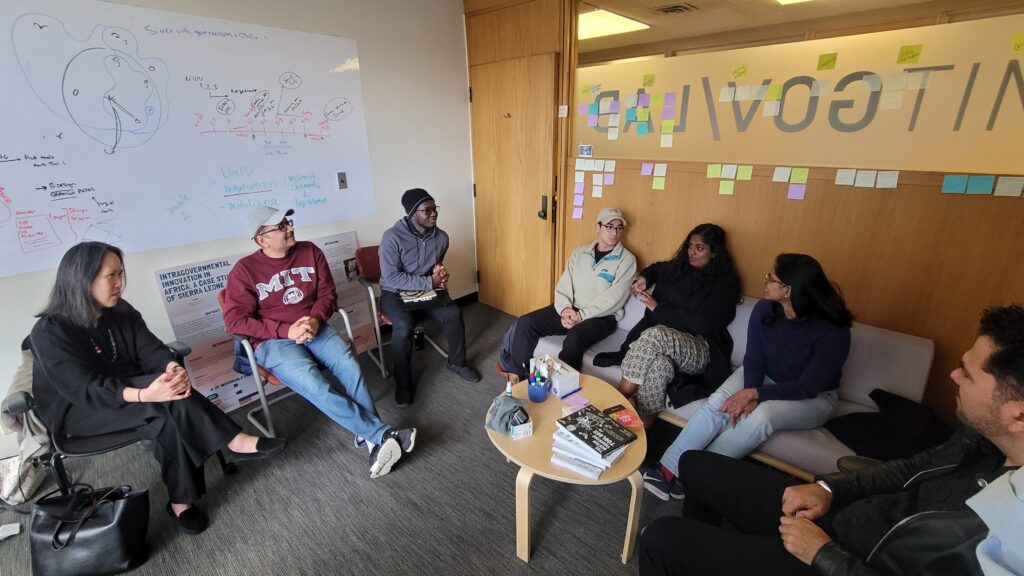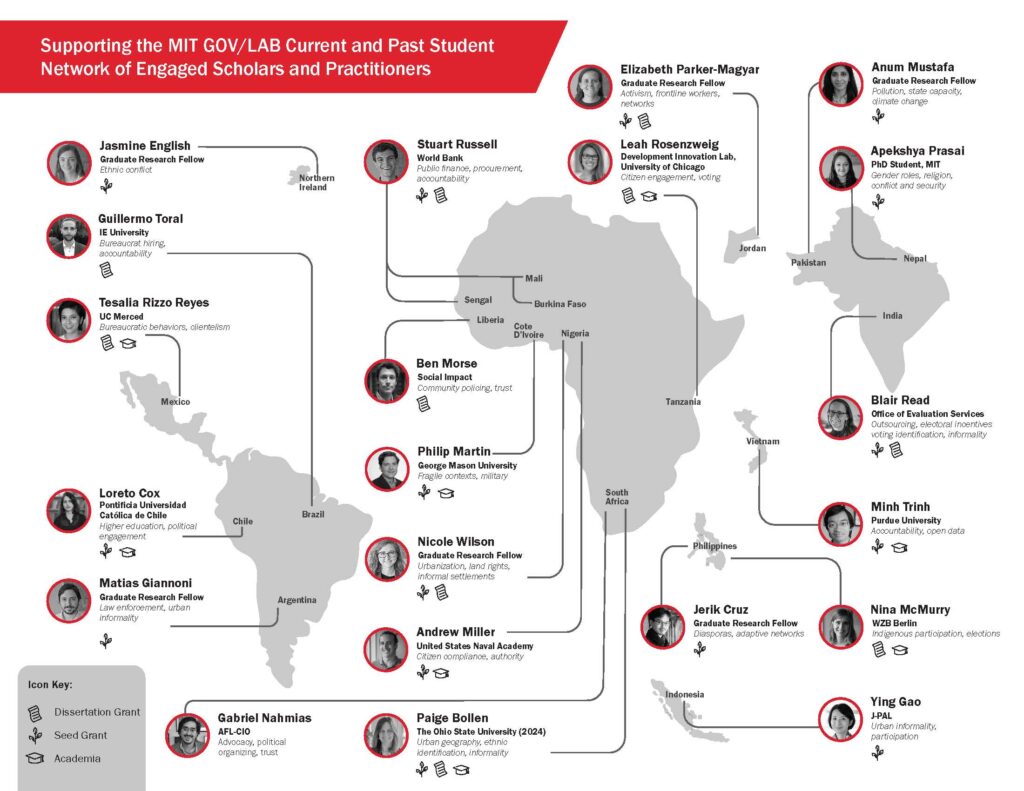Check out the online version and subscribe here to get the next digest.
Dear MIT GOV/LAB Community,
We are grateful that summer is finally here! At the same time, we have trepidation about the environmental challenges this season may bring. El Niño, the warm phase of a climate pattern in the tropical Pacific, has arrived and experts forecast it will lead to record heat worldwide for the next few years. Earlier this month, smoke from unprecedented Canadian wildfires set off air quality alarms on MIT campus and across the U.S., reminding us of how we are all connected.
As Professor Lily Tsai wrote in a recent essay “Taking Responsibility for Tomorrow: Remaking Collective Governance as Political Ancestors,” humans are notoriously not great at making tradeoffs today for a better tomorrow. Our challenge is to build democratic systems that can prevent the worst possible scenarios for the future health of our communities and the planet.
Our concerns about the warming world have seeped into many of our team discussions lately — how do global environmental trends impact local politics and citizen trust in government (more on trust in our Trust Mini Guide)? And, how can we use innovations from design and social science to make policies and programs more effective in the long run? To answer these questions, we want to collaborate with a diverse set of partners to identify and test new innovations in governance and collective decision-making (thought partners welcome!).
This digest has our biannual reflections on recent research, events, and partnership highlights. Enjoy!
Are we prepared for the next pandemic? Probably not.
We continue to learn more about why citizens’ trust in government matters during health crises and what increases vaccine uptake (see our recent research on the Covid-19 pandemic in sub-Saharan Africa). But momentum to take preventative measures seems to be waning. Forthcoming research further explores the role of trust in health behavior and how people value well-intentioned vs. well-resourced health centers.

Nurse Gulboa Rhode administers a COVID-19 vaccine at the Makerere University Hospital in Kampala, Uganda on January 19, 2022.
We need to work with governments to make them more accountable. But it is a slow, incremental process.
A key motivation for our Governance Innovation Initiative and working more directly with governments to increase responsiveness and accountability, is because just working with citizens isn’t enough. However, it’s not simple to try to motivate bureaucracy to do things differently, even with reform champions leading the way. A new learning cases series “Designing Governance Innovations in Resource-Constrained Settings” shares how we have been experimenting with different forms of engaging with governments to try to improve public sector innovation. This summer, we also are supporting five MIT graduate students researching public sector innovation in Mexico, Kenya, Cape Verde, and Brazil.

Tilting the field. How do we foster more equitable exchange between the Global North and South?
Over the last few years, we’ve been working with the Busara Center for Behavioral Economics in Nairobi, Kenya, to build knowledge exchange between Global North and South scholars and practitioners. In this learning case, we reflect back on what worked and didn’t work for improving intellectual exchange and knowledge production. We also hosted Gideon Too from Busara as our practitioner-in-residence this spring. Gideon is working on a report applying behavioral science to governance issues in the Global South.

Photo by Susan Q Yin on Unsplash.
Congratulations to our PhD graduates, Paige, Blair, Ying, and Gabriel!
It’s been rewarding to see the progress and research outcomes of our students trained with an engaged scholarship ethos and supported through seed and dissertation grants. The infographic below shows the diverse spread of students who have come through the lab over the last decade or so. It also highlights their contributions to knowledge and the mix of academic and applied careers they’ve ended up in.
As the academic year wraps up, we are excited to see what comes next, and we look forward to hearing from you!

Infographic by Holly Strickland.
—-
Some additional updates below from work with collaborators and research affiliates:
- Strengthening Community Data Engagement in Humanitarian Health Crises. MIT GOV/LAB Research Assistant and MIT Media Lab Graduate Student Leonard Francis Vibbi reflects on community data engagement research work in Sierra Leone.
- MIT GOV/LAB at the World Bank GovTech Summit. As an academic sponsor of the event, we explored the potential of GovTech to improve government accountability and citizen trust.
- Q&As with our governance innovation collaborators. Seongkyul Park talks to Sierra Leone’s Directorate of Science, Technology, and Innovation about their experience innovating from within and CcHub Nigeria about designing with government.
- New book from Professor Noah Nathan. “The Scarce State: Inequality and Political Power in the Hinterland” reframes the political economy of hinterlands through a study of Northern Ghana alongside shadow cases from other world regions. Also featured in MIT’s summer reading list!
- Research support for graduate students. Anum Mustafa, one of our Graduate Research Fellows, researches why regulations related to air quality in South Asia are often poorly implemented.
- New research on paying taxes without receiving services. In research published in Studies in Comparative International Development, MIT GOV/LAB researchers look at factors influencing people’s willingness to pay taxes in informal settlements in Lagos, Nigeria.
Photo by Angie Muldowney on Unsplash.
